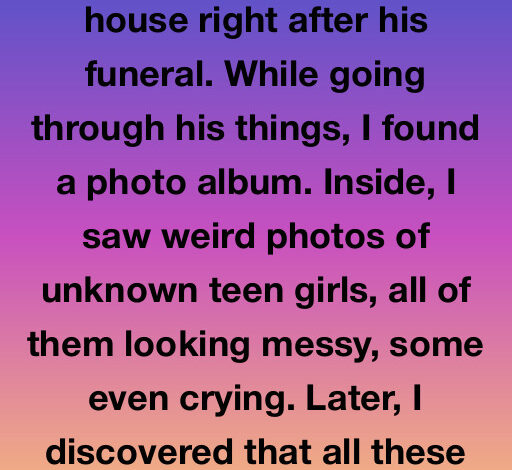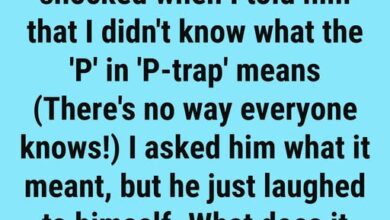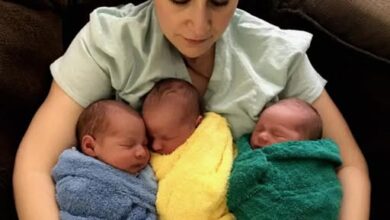
The Album In The Attic!
I moved into my late dad’s house the day after we buried him. The place felt frozen in time — the same tools on the workbench, the same faded recliner, the same half-finished projects he always promised he’d get around to. While sorting through his things one afternoon, I opened a photo album tucked behind some old manuals. I expected pictures of my childhood or old family vacations. Instead, what stared back at me were dozens of photos of teenage girls I had never seen before.
Every girl looked disheveled, scared, fragile. Some had bruises. One girl’s lip was split. Others were crying, staring just past the camera like they wanted to disappear. These weren’t posed photos or happy snapshots. They looked like mugshots taken in the middle of a crisis.
My dad had been a quiet man, a mechanic who fixed engines and hardly talked about anything beyond work and Sunday dinners. Nothing in his life hinted at… whatever this was. I spent the next few days walking around the house, cleaning, sorting, trying to distract myself — but that album kept tugging at me like a loose thread.
One night, unable to sleep, I grabbed a butter knife and opened one of his locked drawers. Inside was a stack of letters bound with a rubber band and a torn envelope labeled in his shaky handwriting: “To be opened in case of emergency.”
My stomach flipped.
Inside that envelope was a single page.
“If you’re reading this, it means I’m gone. The girls in the album—some were runaways, some addicts, some escaping dangerous men. I helped them. I hid them until it was safe. I never told anyone to protect them — and to protect myself. Please don’t judge what you don’t understand. Ask Marie. She’ll explain.”
I stared at the name. Marie? I didn’t know a Marie in my dad’s life. But one letter in the drawer was addressed to her with a local return address. The next morning, I drove there.
The woman who opened the door looked small but sharp, like someone who’d lived a thousand different lives. The moment I said my dad’s name — Paul — her shoulders dropped, her eyes softened, and she sighed like she’d been waiting years for me.
“You’re his kid?” she asked.
“Yeah. I found… something. He said you’d explain.”
“Come in.”
Her home smelled like cinnamon and old paperbacks. She brought me into the kitchen, set two cups of tea on the table, then pulled out a biscuit tin. Inside were more photos — same style as the album — and newspaper clippings.
“Your father and I ran a safe house,” she said quietly. “Back in the early 2000s. For girls escaping trafficking, abuse, the streets. You name it.”
I blinked at her. “I’m sorry — what?”
“You heard me. Shelters back then were overcrowded. Some were dangerous. These girls needed a place to hide. Paul opened his garage to the first one. Then another came. Then another. Before long, we had bunks in the attic, girls sleeping wherever they could. He took those pictures in case one vanished — something for the police, or a lawyer, or whoever needed proof.”
It was like my memories suddenly snapped into place. The nights he’d take mysterious calls in the garage. The times he told me not to open certain packages. The weekend he insisted I stay at a friend’s house, saying the plumbing was acting up — even though nothing was wrong.
“How many girls?” I whispered.
“Twenty-eight,” she said gently. “Your dad saved twenty-eight lives.”
I looked at the photo she held up — a girl with swollen eyes and trembling lips. Marie smiled softly. “She’s a nurse now. Has a family. Sends a Christmas card every year.”
My breath caught. I had never been prouder and more heartbroken at the same time.
I spent the next few days meeting some of the women he’d helped. Marie gave me names, numbers, old email addresses. And they responded. Immediately.
“Paul saved my life,” one wrote.
“I wouldn’t be here without him.”
“He gave me hope when no one else did.”
“I learned what safety felt like in that garage.”
I met one named Lisa for coffee. She brought an entire folder — proof she now ran a shelter modeled after my dad’s.
“He made me believe I deserved better,” she said. “That changed everything.”
Every story felt like a missing piece of who my father had been.
Then came the day a man showed up at the house. Well-dressed, polite, but nervous. He introduced himself as Ronnie.
“I think Paul saved my sister,” he said. “She… didn’t make it, but before she died, she told me everything. Told me if I ever got the chance, I should thank him.”
He stepped inside and looked around quietly, like the place was sacred.
“She was fifteen,” he said. “Our stepfather was dangerous. She ran, ended up sleeping behind a diner. Paul found her. Cleaned her up. Kept her safe. She said it was the first time she felt human again.”
Then he handed me a check.
“I run a construction company now. I want to help keep this place running. Maybe turn it into a permanent shelter. In his honor.”
It was for $50,000.
That night, I called Marie. She cried.
Within months, we turned the house into a nonprofit: Paul’s Place. Volunteers poured in. The community rallied. Donations came from people who’d never met him but had heard what he’d done.
The attic was restored. The garage renovated. Local artists painted murals. Businesses donated groceries, clothes, furniture. The house became a safe haven again — this time, publicly, proudly, legally.
The first girl who came through was seventeen. She stayed three months, earned her GED, got a job, and left a note on the wall before walking out with her head high:
“Thank you for seeing me.”
A year after his funeral, we held a ceremony in the backyard. People told stories. They cried. They laughed. They honored a quiet man who’d saved lives without ever asking for recognition.
Near the end, a woman in her thirties stood up in the back. Her name was Claudia. She’d been in one of the photos I remembered — the one with the black eye.
“I was fourteen,” she said. “Lost, angry, terrified. Paul saved me. I’m a social worker now. Helping girls who were like me.”
Her voice cracked.
“I never got to thank him. But I wanted you to know — he saved my whole life.”
Everyone stood and clapped.
After the ceremony, I wandered into the backyard where he used to fix bikes under the shade of the old maple tree. The sun was setting, painting everything gold. I swear I could hear him — the soft rumble of his voice, always calm, always steady.
“Do the right thing,” he used to say. “Even when nobody knows.”
I smiled to myself.
My dad had been flawed, stubborn, quiet — but he was good. And sometimes good people don’t talk about what they do. They just do it. They save the world in small, quiet pieces.
I kept the album. Not hidden, not shameful. It sits in a glass case at the entrance of Paul’s Place. Below it is a plaque that reads:
“Heroes don’t always wear capes. Sometimes, they wear oil-stained shirts and speak softly.”
And now, whenever a new girl walks through the front door nervous, scared, unsure — she sees those faces. Survivors. Proof that healing isn’t just a dream.
My dad gave them safety. I get to give them a future.
If this story touched you, share it. Someone out there needs to be reminded that kindness still exists — often in the most unexpected places.




